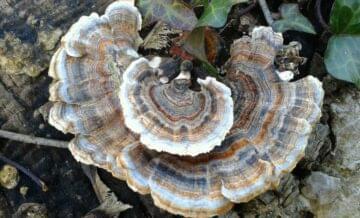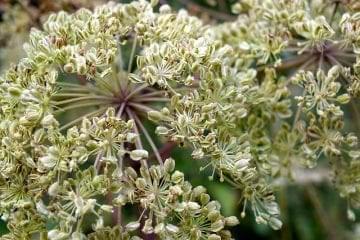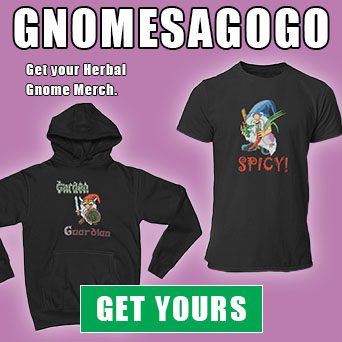Episode XII
One Important rule Sadie, my teacher, taught me early on is that the risk of contracting Virus Z is a key factor in choosing which plants to harvest. Roots, for the most part, are the riskiest of all. When you’re digging, it’s too easy to stop watching for Zs. Even relatively easy roots, like valarian, can keep you too engaged to notice potential danger creeping up, especially when you’re digging more than one plant. Deeper roots, like elecampane, are downright dangerous. Even with the protection of a good lookout they’re not worth the risk unless you’re facing a life or death disease.
Burdock is an exception. Its root is good food and medicine, especially for those of us who’ve struggled with starvation, poor nutrition, and disease. Its both nutritious and it helps the body absorb vitamins and minerals more efficiently. Burdock is an important root for all apocalypse survivors. For those of us who feel weak, who can’t seem to find the vigor and strength to endure, who seem to never be fully healthy, burdock is essential.
When I first met Paul, he was a test case for burdock healing. He’d managed to survive his first Pacific Northwest winter by the skin of his teeth, living off canned, dried, and junk foods he’d found in the cabins and abandoned houses on the outskirts of Sadie’s territory. We were gathering Oregon grape fruits when we ran into Paul. He was in awful shape, skinny with sallow skin, a lingering cough, and chronic diarrhea. We brought him back to Sadie’s cabin with us. Under her care, he stabilized and lost the cough. Though he regained some of his weight over the next few weeks, it wasn’t enough. Sadie was worried about him.
“He can’t absorb enough from his food,” she told me quietly three weeks after we’d taken Paul in. “He won’t make it through another winter like this. He needs burdock, and I’m out. We have to go dig it now.”
“Trevor will will be back from setting his traps in a few weeks, can he wait that long?” I asked. Trevor was the huge, hulking trapper who served as Sadie’s root-digging lookout. His homebase was a couple of miles from Sadie’s, and he returned to it every fall when the rose hips were ready, which was his way of telling it was time to dig roots.
“The sooner we get Paul started on burdock, the better his chances of making it through another winter, ” she said. We agreed to set out to dig burdock the next morning.
Sadie’s patch of burdock was a half day’s walk from her cabin at an old, abandoned farm site. The compound was ramshackle. The farmhouse had burned shortly before Sadie found it. She’d pulled the charred bodies from the wreckage, decapitated, and buried them, all ten, a couple of months after virus Z first hit the valley. She’d freed the animals trapped in the smaller barn, the one nearest the house and garage. They were long gone. Over the years, the larger barn had been pillaged so it now stood more like a covered junk yard than anything else. The garage was much the same. No one had claimed the place, and it was no wonder. Defense there would have been a nightmare.
Burdock had taken root mainly between the smaller barn and the garage. Sadie posted Paul and I as lookouts. The digging went fairly well that day up until the very end. Sadie was working one more chunk of root from the ground when trouble lurched around the garage corner.
“Sadie, look out,” Paul’s voice boomed through the quiet afternoon.
Harvey and I were on the other side of the barn, rummaging through the junk just inside the door when we heard a scuffle break out. I grabbed the first long object I saw, an old lawnmower blade, and ran out and around the corner toward the noise. Harvey was hot on my heels.
Paul was wrestling with an adolescent boy. His older brother was closing in on Sadie, who’d dropped her root bag and was brandishing her digging fork like a pike. Harvey charged forward, a snapping, growling bomb of black fury. Before I could reach them, he’d launched himself at the older brother and knocked him over backward, landing on top of him with his teeth clamped about the boy’s right forearm.
“Stop, leave him alone,” Paul’s attacker shouted. He pushed past Paul, knocking him against the barn wall. Paul grabbed the boy’s sleeve and held fast.
“Harvey, down,” I shouted. Harvey didn’t back down.
“Get him off,” the older brother shouted over and over as he struggled against the weight of my big, black dog.
“Don’t hurt him,” the boy wrapped in Paul’s arms shouted over and over.
“Harvey, enough,” I said as I reached for the scruff of Harvey’s neck. He released the boy’s arm and turned as if he were going to snap at me. He growled, broke my grip and lunged toward me. I backed away a pace, gripping the lawnmower blade still in my hand.
“Enough, Harvey,” I said. He growled again, then his eyes met mine. It was as if a switch had been triggered in his brain. He backed down, wagging his tail and trotting to me a wiggling ball of puppy-like dog. When I walked him away from the fight, I was shaking.
It turned out the boys had set up there just a few nights before we arrived. They’d lost their mum to the virus only weeks before. They were half-starved. They’d attacked thinking we might have food. So far, they’d encountered few survivors, and those they had found had run them off rather than feed them.
Sadie patched them up as best she could and offered to help them get to the military base in town, but they declined.
“Well, if you won’t stay with us, at least let me show you how to gather a few wild foods,” Sadie said. “There’s no sense in you dieing of starvation.”
Sadie set to showing them the wild and feral domestic foods around the farm while Paul and I gathered up the roots she’d dug and kept a look out. She finished back at the burdock patch.
“Burdock used to be called Hobo Buttons because of how the burs stick to clothing,” she told them. “Those burs make identifying this plant easy, since you don’t dig it before the burs are easily visible.”
By the time we left, the youngest boy could identify burdock’s big, slightly fuzzy leaves, recognize the sweet, woodsy flavor of its root, and knew how to pick the seeds from its burs to spread or eat. A year later, the brothers were still living in the barn farming burdock and others. Sadie no longer needed a big, burly lookout for digging burdock root. The brothers have her covered.
May you be well,
Zombie Hunter C.
Publisher’s Disclaimer: This column is a work of fiction. Names, characters, places, and incidents are either the product of the author’s imagination or are used fictitiously. Any resemblance to actual events or locals or persons, living or dead, is entirely coincidental.







